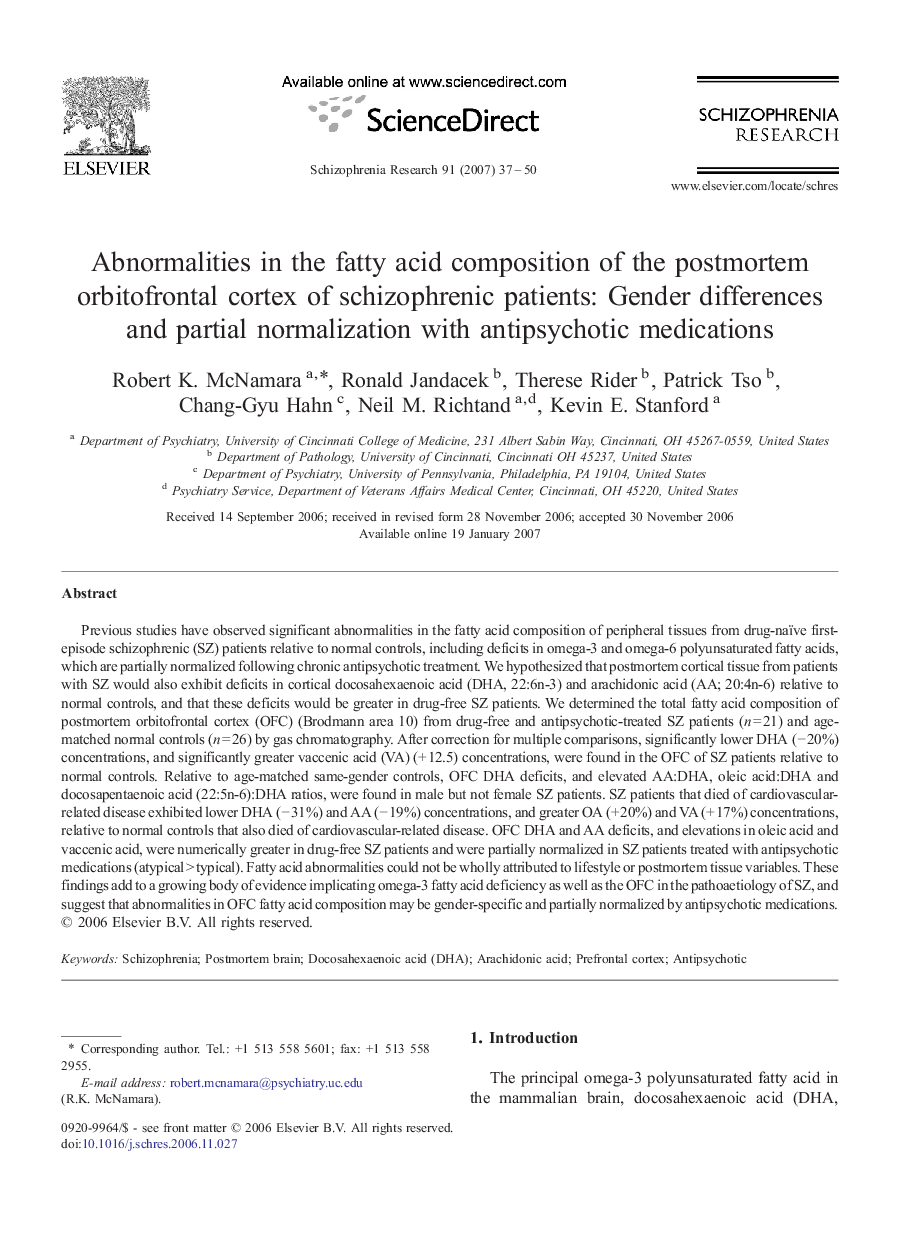| Article ID | Journal | Published Year | Pages | File Type |
|---|---|---|---|---|
| 342021 | Schizophrenia Research | 2007 | 14 Pages |
Previous studies have observed significant abnormalities in the fatty acid composition of peripheral tissues from drug-naïve first-episode schizophrenic (SZ) patients relative to normal controls, including deficits in omega-3 and omega-6 polyunsaturated fatty acids, which are partially normalized following chronic antipsychotic treatment. We hypothesized that postmortem cortical tissue from patients with SZ would also exhibit deficits in cortical docosahexaenoic acid (DHA, 22:6n-3) and arachidonic acid (AA; 20:4n-6) relative to normal controls, and that these deficits would be greater in drug-free SZ patients. We determined the total fatty acid composition of postmortem orbitofrontal cortex (OFC) (Brodmann area 10) from drug-free and antipsychotic-treated SZ patients (n = 21) and age-matched normal controls (n = 26) by gas chromatography. After correction for multiple comparisons, significantly lower DHA (− 20%) concentrations, and significantly greater vaccenic acid (VA) (+ 12.5) concentrations, were found in the OFC of SZ patients relative to normal controls. Relative to age-matched same-gender controls, OFC DHA deficits, and elevated AA:DHA, oleic acid:DHA and docosapentaenoic acid (22:5n-6):DHA ratios, were found in male but not female SZ patients. SZ patients that died of cardiovascular-related disease exhibited lower DHA (− 31%) and AA (− 19%) concentrations, and greater OA (+ 20%) and VA (+ 17%) concentrations, relative to normal controls that also died of cardiovascular-related disease. OFC DHA and AA deficits, and elevations in oleic acid and vaccenic acid, were numerically greater in drug-free SZ patients and were partially normalized in SZ patients treated with antipsychotic medications (atypical > typical). Fatty acid abnormalities could not be wholly attributed to lifestyle or postmortem tissue variables. These findings add to a growing body of evidence implicating omega-3 fatty acid deficiency as well as the OFC in the pathoaetiology of SZ, and suggest that abnormalities in OFC fatty acid composition may be gender-specific and partially normalized by antipsychotic medications.
